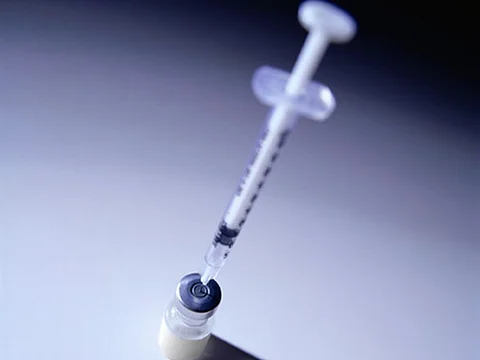One in Five Pediatricians Drops Families Who Refuse Vaccines: Survey
MONDAY, Nov. 2, 2015 (HealthDay News) -- One of every five U.S. pediatricians regularly drops families who refuse to have their children vaccinated, a new survey shows.
Doctors in the South and Northeast were more likely to take this hardline stance, said study lead author Dr. Sean O'Leary, a pediatric infectious disease specialist at Children's Hospital Colorado in Denver.
But O'Leary said he's heard anecdotally that pediatricians across the nation have come under pressure to refuse to take on unvaccinated children, following the Disneyland measles outbreak that occurred earlier this year.
"I'm hearing the practice has become more common, particularly in California, following the outbreak," O'Leary said. "Parents say, 'I don't want to take my child to a clinic with non-vaccinators and expose them to risk,' so there is parental pressure on some pediatricians."
An ongoing medical debate continues to simmer over a doctor's right to refuse treatment for children whose parents are against vaccination, O'Leary added.
The American Academy of Pediatrics and the U.S. Centers for Disease Control and Prevention both discourage this strategy, the study authors said in background information. The survey is published online Nov. 2 in the journal Pediatrics, an academy publication.
These organizations urge physicians to keep treating the children of vaccine-reluctant parents, and to build a relationship of trust that could lead to the parents being convinced of the safety of and need for childhood vaccinations.
To see how widespread the practice of dismissing anti-vaccine families has become, the researchers conducted a survey of 815 pediatricians and family physicians in 2012. About 66 percent of the doctors responded to the survey.
Those surveyed said it's generally rare for a parent to refuse a vaccination for their child. Overall, 83 percent of doctors reported that 1 percent or fewer parents refuse one or more infant vaccines in a typical month.
When that happens, 21 percent of pediatricians and 4 percent of family physicians said they "always" or "often" dismiss families, according to the survey results.
Pediatricians likely to dismiss families over vaccination are nearly five times more likely to be in private practice, and four times more likely to be from the South or a state that does not allow philosophical exemptions from vaccination.
There are a number of reasons why pediatricians take this tack, said O'Leary and Dr. H. Dele Davies, a member of the American Academy of Pediatrics' committee on infectious diseases.
"For these physicians, what I'm hearing them say is they strongly feel not immunizing their children is such a great risk that they're taking a stand," said Davies, an expert on pediatric infectious diseases and vice chancellor for academic affairs at the University of Nebraska Medical Center, in Omaha.
Because pediatricians only treat children, they are likely to be much more concerned with the safety of clientele who have not yet been immunized, Davies said.
"They may be reflecting their sense that, if you don't want to do this, I don't want to expose my other patients to potential risk," he said.
Pediatricians may also feel that they won't be able to establish a relationship with parents if they can't see eye-to-eye on vaccination, O'Leary said.
"The pediatrician might feel that the physician/patient relationship may not be a productive one if they're so far apart in terms of a core concept like vaccination," O'Leary said. "Pediatricians consider vaccination one of the most important things they do."
Finally, pediatricians sometimes use the threat of dropping a family to convince parents to agree to vaccination, O'Leary said.
"It really convinces a lot of parents to go ahead and get their child vaccinated, because it's such a strong message about the importance of vaccination," he said.
No one knows what happens to families who are dropped for vaccination refusal, which demonstrates the need for further research on this topic, O'Leary said.
"This practice is pretty common, and we don't know what happens to those families," he said. "We don't know how often they make the decision to go ahead and vaccinate, despite their concerns. We don't know where they go if they do leave their pediatrician."
Dr. Wanda Filer, president of the American Academy of Family Physicians, said her group also discourages dropping families over the issue of vaccination.
Family physicians are much less likely to drop families, according to the survey results. Filer said that's probably because these doctors treat the entire family, and not just the kids.
In fact, Filer said the Disneyland measles outbreak has made parents in her York, Pa.-based practice more interested in making sure kids are properly immunized.
"There's more opportunity for family physicians to double down on conversations about the importance of vaccines," she said.
More information
Visit the U.S. National Institutes of Health for more on childhood vaccinations.



